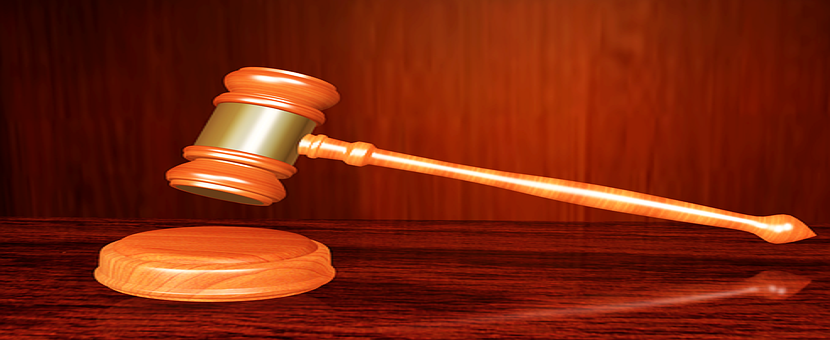Madukaegbu v. State [2018] 10 NWLR (Pt. 1626) 26 at 63, paras. E-F, per Eko, JSC:
“The office of the Attorney-General enures for the protection of the rights of all citizens. The hallowed office cannot, and should not, be seen as a champion law breaker. The assumption is that the Attorney-General knows all the laws made or deemed to have been made or enacted by the Government he is an officer in, and therefore should not be seen to selectively comply with and/or break the laws he was appointed to enforce as the Chief Law Officer of the State.”
Notes:
The above observation of Eko, JSC is as captured in his dissenting Judgment in the case. Regardless, it has the necessary weight and should be adhered to by Attorney-Generals of the States and the Attorney-General of the Federation. Indeed, the office of the Attorney-General is a hallowed office constitutionally provided for and as such must be manned by persons of proven intellectual standards and of course, impeccable pedigree. The calibre of persons who served as the Attorney-General of the Federation in the early history of Nigeria will shed more light on this. For instance, Hon. Justice Taslim Olawale Elias (of blessed memory), the first Nigeria’s Attorney-General and later Chief Justice of Nigeria was an outstanding Scholar of international repute who contributed immensely to the development of law in Nigeria and beyond. So too, Dr. Nabo Graham-Douglas (of blessed memory), Hon. Justice Augustine Nnamani and others in those early times.
What happened in the instant case was that the Appellant and others were charged for the offences of conspiracy to commit murder and attempted murder. During the trial, it was realised that there were some statements of certain witnesses not included in the proofs of evidence. The Appellant’s counsel wrote several letters directly to the office of the Attorney-General of Anambra State demanding for the said missing statements as it was the Appellant’s belief that the statements will exculpate him. The Attorney-General discourteously ignored the letters. The Appellant’s counsel thereafter filed a motion seeking to quash the charges against the Appellant. The motion was dismissed by the trial Court and Court of Appeal. The Appellant’s appeal to the Supreme Court was dismissed by a majority of 4 to 1, Eko, JSC dissenting. Nweze, JSC who delivered the leading Judgment reasoned that the proper thing was for the Appellant to apply to the Court, either orally or in writing, for the prosecution to supply the needed documents (or facilities needed for defence) and not to write the letters. The Court took the position that, effectively, the motion ought not to pray for the quashing of the charges but for an order directing the prosecution to produce the statements.
Eko, JSC in his dissenting views took the position that the said missing statements were statutorily required to accompany proofs of evidence (Section 146, Administration of Criminal Justice Law, Anambra State). Thus, “Proceedings founded on a process, like proofs of evidence, that is a nullity for non-compliance with mandatory statutory provisions or pre-condition for initiating or activating the process or the proceedings are incompetent and a nullity.” As compelling as this argument is, the writer is more persuaded by the majority decision to the effect that the Appellant ought to have simply applied to the Court to compel the prosecution to produce the needed statements. More so, as Kekere-Ekun, JSC stated in his concurring Judgment, “It was speculative at that stage for the Appellant to complain of lack of fair hearing, as he still had an opportunity to object to the tendering of the statements of any witness whose statement was not made available for inspection as per his request.” (See p. 54 of the report). However, considering that there is a presumption that the statements in question were left out because they might exculpate the Appellant as alleged, they may not be tendered eventually (especially where the prosecuting authority acts more like a persecutor rather than a prosecutor). The important point therefore is that the Appellant’s counsel ought to have applied to the Court for an order compelling the prosecution to produce the needed documents instead of seeking to quash the charges and the proceedings.
Above all, there is nothing in the leading Judgment that excuses the office of the Attorney-General from the unprofessional and unacceptable conduct of ignoring the Appellant’s counsel’s letters. Sadly, this has become typical of some government offices and agencies in Nigeria that abuse their offices and powers. As Eko, JSC puts it: “Accordingly, when the office of the Attorney-General, in order to oppress the accused and to put him to prejudice, files grossly incompetent and defective proofs of evidence, the Court can intervene in the interest of justice.” (See p. 62 of the report). Even the majority Judgment agrees that the Court should intervene. They only differ as to how the Court would intervene in the instant case. As stated, the majority was of the view that the intervention would be by an order directed to the prosecution following a motion filed by the Appellant in that regard but not by quashing the charges altogether. Eko, JSC believes the charges deserve to be quashed and proceedings nullified. Either way, the office of the Attorney-General ought to have done better to aid the administration of justice and prosecution of offenders but not persecution and maintain high professional standards which include due respect for opposing counsel and avoidance of scurrilous remarks.














